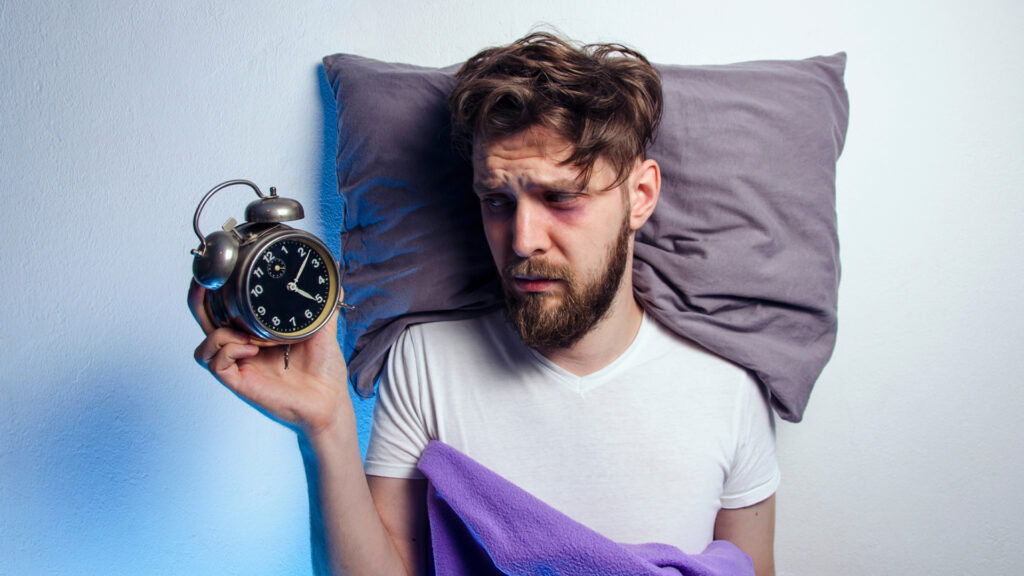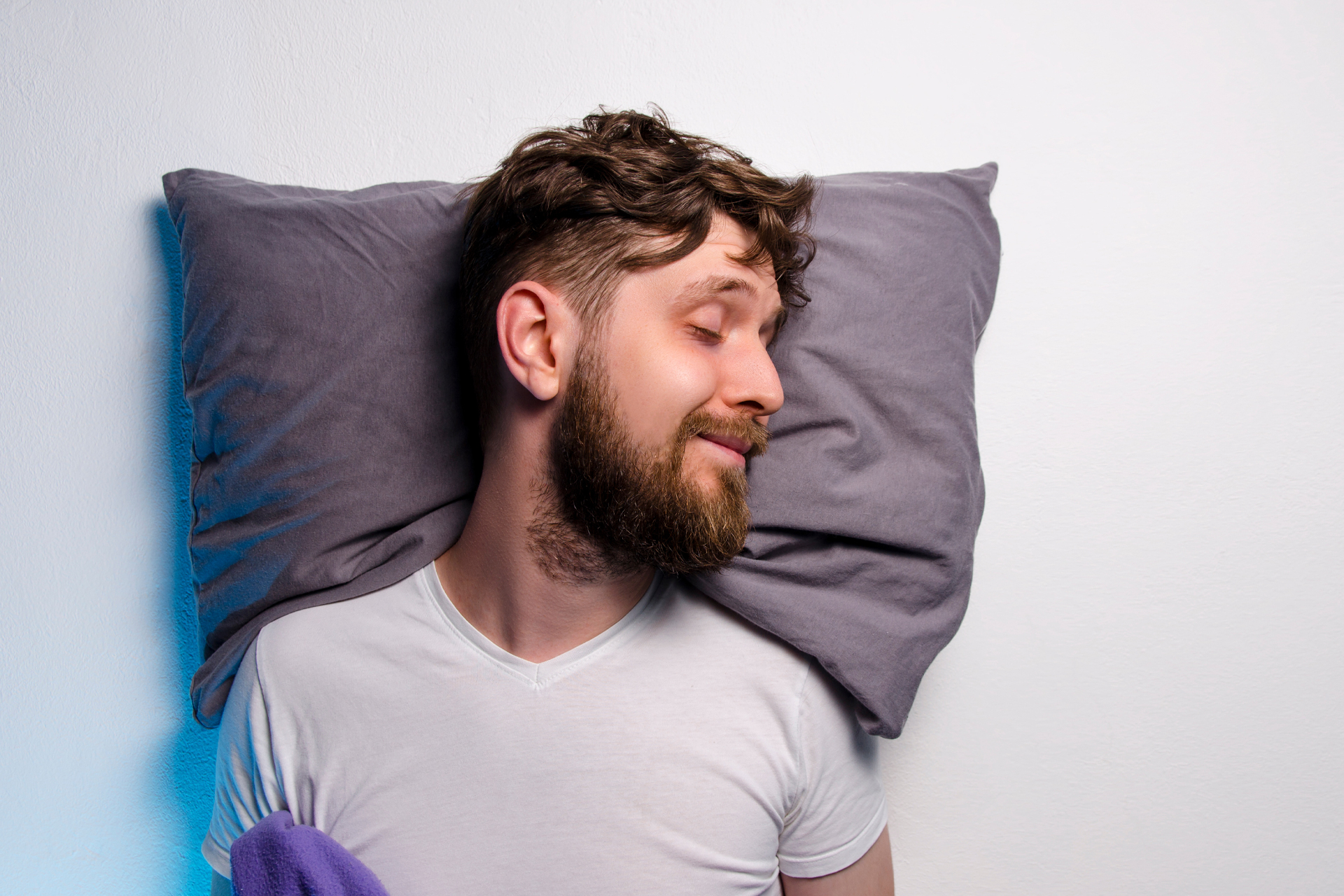Oh Well!
Chasing Zzzzz...
Sleep is the balm that soothes and restores. So why is it so
darn hard?
- Heather Anne Lee

The whole world is exhausted, and it’s killing us. Particularly me.
Last month, I walked myself into the emergency room with a blood pressure of 185/131, a screaming headache, and heart palpitations. Thankfully, it wasn’t a heart attack, although I may not be so lucky next time.
The doctor sent me home with a prescription for lisinopril and a book: Why We Sleep, by Matthew Walker.
According to both my cardiologist and the neuroscientist-turned-author, I’m seriously damaging my health—and life—by not sleeping enough.
“Sleep loss will leak down into every nook and cranny of your physiology,” he shares. “Sleep, unfortunately, is not an optional luxury. Sleep is non-negotiable.”
The book details all the ways in which sleep deprivation hurts people: it makes you more forgetful, unable to learn new things, more vulnerable to dementia, more likely to die of a heart attack, less able to fend off sickness with a strong immune system, more likely to get cancer, and it makes your body hurt more.
Lack of sleep distorts your genes and increases your overall risk of death. It disrupts the creation of sex hormones like estrogen and testosterone and leads to premature aging.
Scared, yet? Me, too.
For the past six months, I’ve averaged five hours of sleep a night, but not consecutively. Every two hours or so, there’s a break, whether that’s the animals (four dogs and two cats!), going to the bathroom, a racing mind, and a partner who snores.
And everyone I speak to seems to have similar issues. Sleep—both its quantity and its quality—is one of the most frequently discussed health topics. How often have you heard a friend or coworker say, “I’m exhausted, I was up half the night”?
So what can we do about it? How can we turn sleep into our superpower?
Matthew Walker has some ideas, which we’ve outlined in the sidebar (see page 56). But to keep it local, we reached out to sleep expert and hypnosis specialist Kellie Smith, owner of Winter Garden Hypnosis.
“It’s one of the most common issues that people come to me for,” says Kellie. “It’s so prevalent in our lives, in our society. And the most common culprit is stress, but we don’t always recognize it.”
From the time we are young, we are constantly adapting to stress in our lives. Whether that’s school or work, health or loved ones, money or social, we store stress in our minds and bodies. And typically, it’s at night when people finally slow down enough to notice how our bodies are feeling and our minds are racing. And whatever the mind is fixated on will automatically grow, and in this case, not in a good way.
“So here we are, tense, tired, sore, stressed, but we lay down, and we start internalizing the idea that we need to get some rest. We try to make ourselves go to sleep, and that’s the worst thing we can do. So the number one thing I tell everyone is to stop forcing the issue. Sleep shouldn’t be a stressful experience, so stop making it just another ‘job’ that you have to accomplish.”
Here are some of Kellie’s favorite techniques to improve sleep length and quality:
- Before going to bed, write down everything that’s on your mind. It can be things to do, people you are worried about, trips you want to take, anything that’s circling around in your mind. By writing it down, you are literally seeing it outside of your mind. Your mind doesn’t have to work to remember it because the list exists, and it doesn’t go away. It’s very powerful.
- Elevate your legs. Unless you have heart or medical issues that prevent you from doing this, put your legs up as high as you can, even against the headboard or a wall. This triggers your parasympathetic nervous system to enter a relaxed state.
- Counting backward from 100, or even 1,000, can be very hypnotic, too.
- Practice self-hypnosis. Kellie’s favorite mind-body practice to release tension is a combination of deep breathing and muscle tension. Take a deep breath in, hold it for several counts, and squeeze all the muscles in your body. Then release the breath slowly along with the muscles in your body. Do this at least three times, but as many as you need to start feeling calm and relaxed. Some people use a 4-5-7 technique, where you inhale for four counts, hold for five counts, and then release for seven. Others initiate the progressive tense-relax pattern following the line of the body—focusing your attention on your head, shoulders, and neck, moving down to your back, arms, stomach, and chest, then legs and feet. Do whatever feels most natural for you. The point is that deep breathing combined with tensing and releasing the muscles will put you into a hypnotic, meditative state of calmness.
- Experiencing difficulty falling or staying asleep can be frustrating. But by paying attention to your sleep patterns, you can make improvements to your routine to set yourself up for rest. If you’re consistently having trouble sleeping, however, you don’t have to go through it alone.
- Talk to a doctor or mental health professional who can identify any potential causes of your sleep difficulties, from sleep apnea to restless legs syndrome to medication-induced insomnia. Together, you may come up with coping skills or other solutions for consistent rest

Wellness Counts
8%
70M
That’s how many people are estimated to have a sleep disorder in the U.S.
SOURCE: sleepfoundation.org
30%
People with better sleep habits were 30% less likely to die for any reason.
SOURCE: Serenityhw.com
1/3
More than 1/3 of U.S adults sleep less than seven hours per night, on average.
SOURCE: sleepfoundation.org
76%
of U.S. adults with a sleep issue or disorder share a household with at least one other person who does.
SOURCE: ACC.org
8 Tips to Improve Sleep Quality
Sleep expert Matthew Walker has some tips that can help you get better sleep at night.
“Experience shows us that remodels and upgrades can be complicated for customers who are unfamiliar with the construction and installation process,” says John. “It’s very likely you will have questions, get new ideas, lose track of scheduling, wonder what next steps are, and generally feel overwhelmed. And that’s why we’re here. Our Concierge Complete program provides you with a dedicated Viewpoint contact to guide you through the entire project. No project is too small or too large; and it’s yours from Inspiration to Installation and every step in between.”
1. Find a routine
Your body’s internal clock follows a specific sleep-wake cycle. Going to bed late one night and early the next throws your circadian rhythm off balance. Attempting to catch-up on missed sleep (sleep deficit) over the weekend may not always be effective and can result in physical and mental fatigue. Thus, adhering to a daily sleep schedule can be highly beneficial for your overall health and well-being.
2. Cut late-night cardio
If you’re feeling run-down in the morning, your late-night workout may be to blame. For some, a midnight sweat session too close to bedtime can make it harder for the brain to wind down. Aim to finish heavy exercise two to three hours before hitting the sack. Learn more about how exercise impacts sleep quality.
3. Reduce caffeine and nicotine consumption
Caffeine temporarily blocks the signal from adenosine, a crucial sleep chemical in your brain, which nonetheless continues to accumulate. This pent-up adenosine eventually breaks through, causing a dramatic crash, often at inopportune times. Nicotine, another stimulant, can lead to very light sleep.
4. Tamp down on the alcohol
Alcohol before bed may help you relax, but too much of it can contribute to a lack of sleep. Alcohol robs you of REM sleep— the deep slumber your brain requires for optimal restoration. Heavy alcohol consumption can also impair your breathing at night, thus causing you tend to wake up multiple times, even if you don’t remember doing so.
5. Eat light at night
When it comes to late-night eating, small snacks are preferable to heavy meals, which can cause indigestion that interferes with your sleep. Avoid drinking fluids a couple of hours before bedtime to prevent frequent bathroom trips in the middle of the night, interrupting sleep, which can lead to sleep fragmentation.
6. Make time to unwind
Create a relaxing routine before bed—like reading, listening to music, or lightly stretching. Matthew also recommends keeping a worry journal, which can help you process difficult emotions before bed.
7. Baths are best
It sounds paradoxical, but taking a hot bath or hot shower before bed can drop your body temperature once you’re in bed, in addition to making you feel sleepier and more relaxed.
8. Check your devices at the door
Think of the ideal bedroom as a prehistoric cave somewhere in the Great North: cool, dark, and gadget-free. Charge your phone in another room, get rid of electronics that cause noise, and ditch the alarm clock, which can make you hyper-aware of every passing minute.
Watch Matthew Walker’s TED Talk, “Sleep is Your Superpower,” with more than 17 million views.







